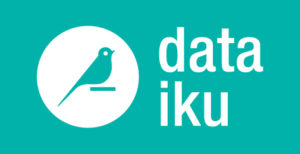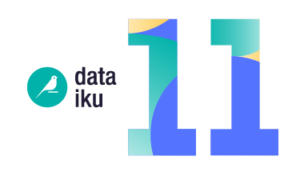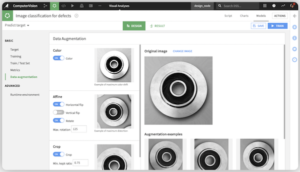
Dataiku 11 Release Offers Enhanced AI Toolset

This week at its data and AI conference in London, Dataiku announced an update of its data science and AI platform, Dataiku 11. The company says the new release “provides new capabilities for expert teams to deliver more value at scale, enables tech-savvy workers to take on more expansive challenges, helps non-technical workers more easily engage with AI, and provides strengthened AI Governance to ensure projects are robust, transparent, and ready for success at scale.”
“Expert data scientists, data engineers, and ML engineers are some of the most valuable and sought-after jobs today,” said Clément Stenac, CTO and co-founder of Dataiku. “Yet all too often, talented data scientists spend most of their time on low-value logistics like setting up and maintaining environments, preparing data, and putting projects into production. With extensive automation built into Dataiku 11, we’re helping companies eliminate the frustrating busywork so companies can make more of their AI investment quickly and ultimately create a culture of AI to transform industries.”
 Dataiku 11 expands access and capabilities for the expert technical community, including Code Studios, an isolated coding environment where developers can use their own IDE or custom web app stack in their Dataiku projects. There is also an experiment tracking feature with a central interface that allows developers to store and compare model runs made programmatically using the MLFlow framework.
Dataiku 11 expands access and capabilities for the expert technical community, including Code Studios, an isolated coding environment where developers can use their own IDE or custom web app stack in their Dataiku projects. There is also an experiment tracking feature with a central interface that allows developers to store and compare model runs made programmatically using the MLFlow framework.
For computer vision developers, Dataiku 11 provides a built-in data labeling framework and visual ML interface for deep learning tasks. The labeling framework automatically annotates large unstructured datasets, while the visual ML interface offers pre-trained models for object detection and image classification.
Another new offering is the Feature Store, which the company describes as a dedicated zone in Dataiku where teams can access and share reference datasets containing curated features suitable for reuse. Additionally, new object sharing workflows aim to increase consistency and efficiency within collaborative projects.
There are also new updates for business users, including a time-series forecasting feature within the VisualML framework that the company says enables teams to statistically analyze temporal data and develop, evaluate, and deploy time-series forecasting models. In addition, new “what-if” accelerators, called Outcome Optimizers, can automatically reveal the optimal paths to business outcomes while considering user-defined constraints to find optimal input values.
Lastly, Dataiku 11 addresses AI governance with new capabilities for managing trust and risk in AI projects. A central registry allows visibility into all types of data and analytics projects where they can be governed and managed according to a defined workflow. To further build executive and stakeholder trust in AI models, there is also automatic flow documentation and proactive model stress testing.
“Dataiku 11 takes a valuable step forward to help our organization thrive with AI and self-service analytics. They’re making AI easier to use for technical and non-technical staff alike while delivering powerful results that have a substantive effect on our bottom line. Best of all, we don’t need to hire an army of technical experts to reap the benefits of AI; instead, we’re empowering the skilled workforce we already have,” stated Ignacio Toledo, data science initiative lead at ALMA Observatory and Dataiku Neuron and Frontrunner award winner.
Learn more about Dataiku 11 here.
Related Items:
Dataiku Nabs $400 Million in Quest to Democratize AI
Fake Data Comes to the Forefront
Dataiku Gets Closer to Snowflake



























